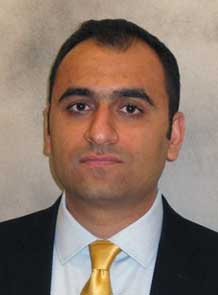2017-02-08 14:00:00 2017-02-08 15:00:00 America/Indiana/Indianapolis Research Seminar Series - Arman Sabbaghi Assistant Professor of Statistics, Purdue University GRIS 103
Research Seminar Series - Arman Sabbaghi
| Event Date: | February 8, 2017 |
|---|---|
| Hosted By: | School of Industrial Engineering |
| Time: | 2:00 - 3:00 PM |
| Location: | GRIS 103 |
| Contact Name: | Erin Gough |
| Contact Phone: | 765-496-0606 |
| Contact Email: | egough@purdue.edu |
| Open To: | All |
| Priority: | No |
| School or Program: | Industrial Engineering |
| College Calendar: | Show |
"Deformation Model Transfer via the Equivalent Effects of Lurking Variables in Additive Manufacturing"
ABSTRACT
Predictive models for geometric shape deformation constitute an important component in geometric fidelity control for additive manufacturing. However, the scope of application for any specific deformation model has traditionally been limited due to the wide variety of possible process conditions associated with different settings of lurking variables. We broaden the scope of deformation models by developing a novel framework for model transfer across different settings of lurking variables. Model transfer in our framework is formulated via the equivalent effects of lurking variables in terms of a base factor. The weakest sufficient condition on the data-generating mechanism in a new setting is identified that permits inference for the equivalent effects with respect to the mean. Bayesian methodology for modeling the equivalent effects and completing the model transfer are developed under this condition. Ultimately, our comprehensive approach connects different process conditions to provide a unified framework for geometric fidelity control in additive manufacturing.
BIO

